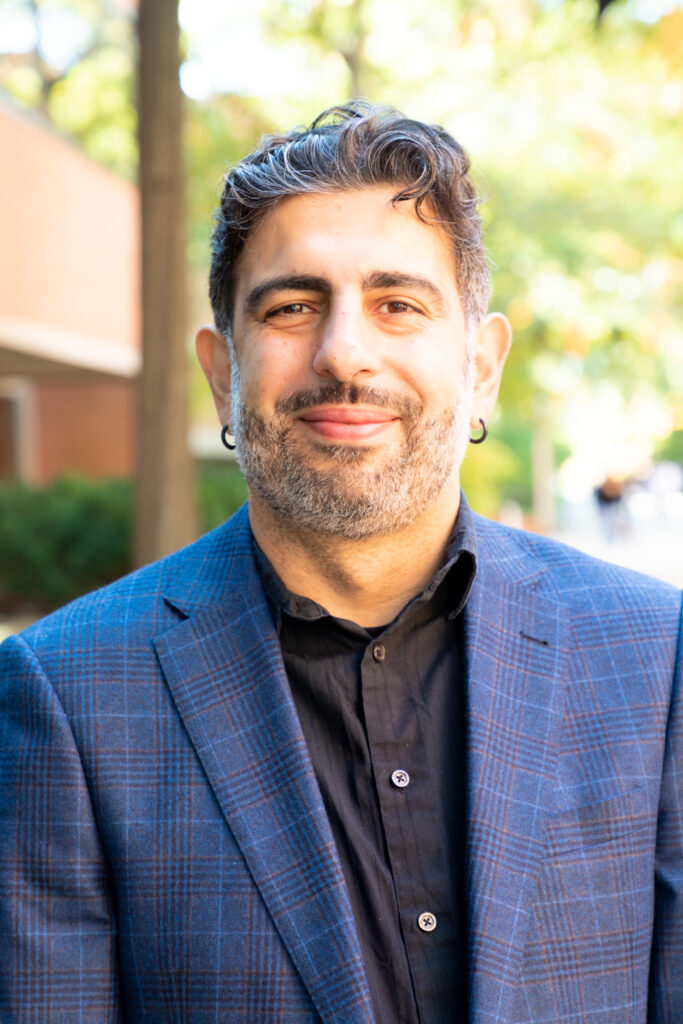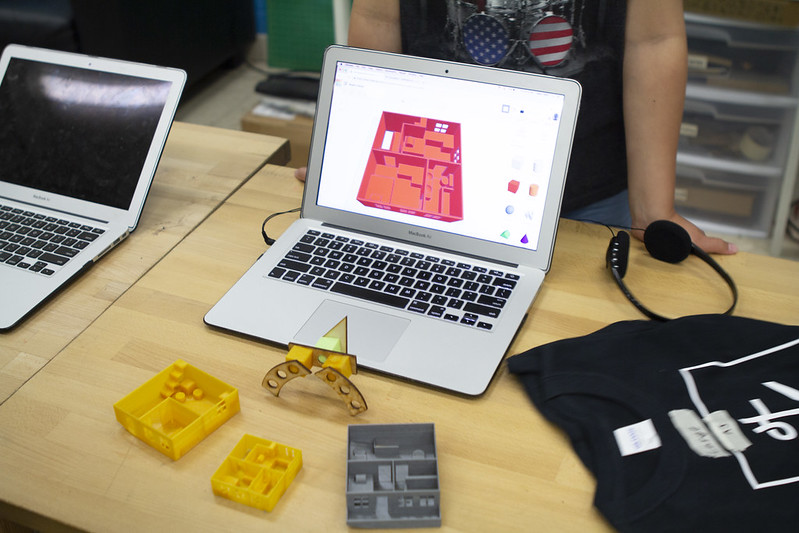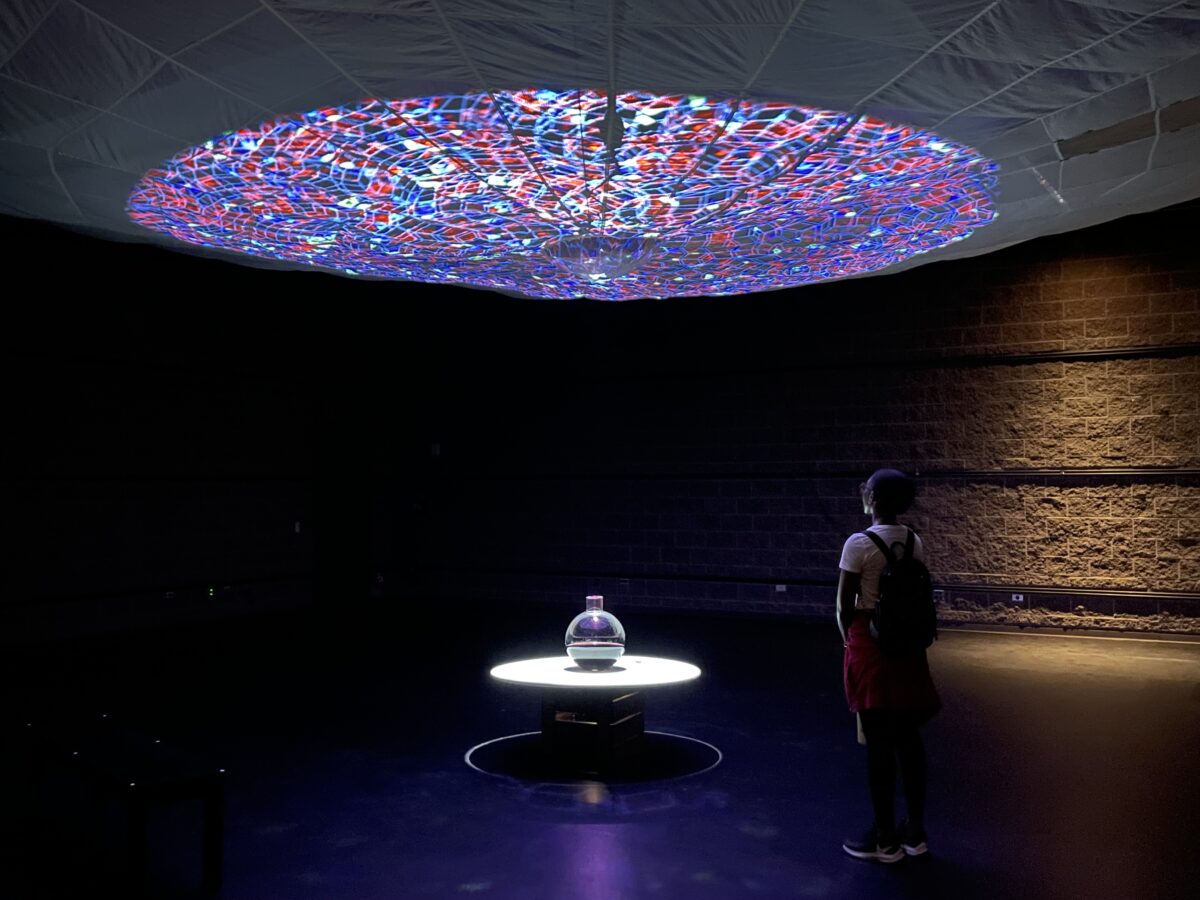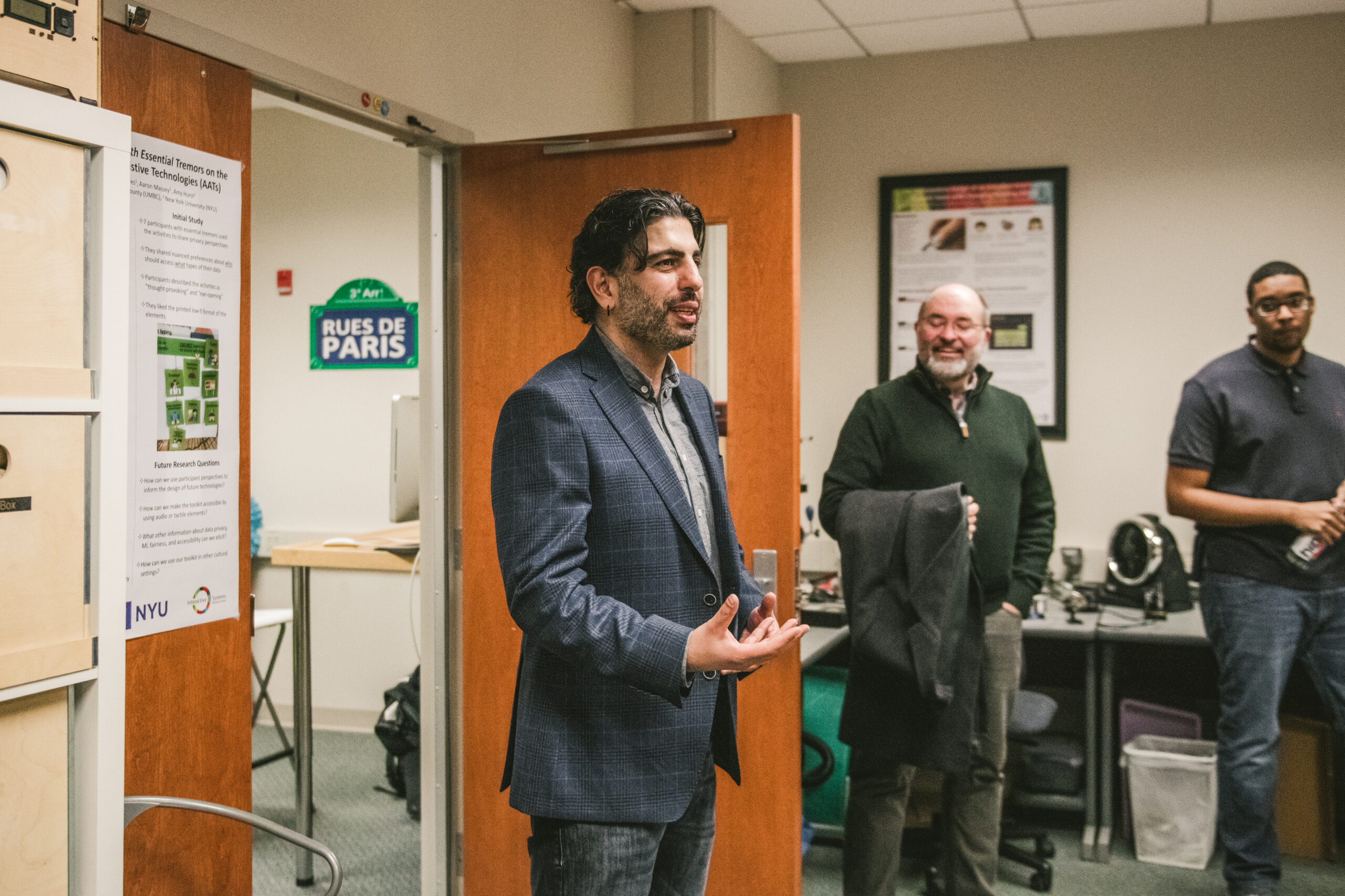
Foad Hamidi, an assistant professor in the Department of Information Systems, has won funding from the National Science Foundation (NSF) to support two new projects offering technology-rich informal learning opportunities to diverse populations in Baltimore and beyond.
In the first project, called Space for All, Hamidi will collaborate with Digital Harbor Foundation, a Baltimore-based organization dedicated to creating pathways to opportunity through technology, and MN Associates, an education evaluation firm, to create accessible and engaging learning spaces and programs with and for youth and young adults with autism in three community spaces in Baltimore City. The second project—Introducing Synthetic Biology using Biomaker Activities—will work with youth and their families to co-design activities that support their STEM learning and engagement. That project is a collaboration with the University of Texas at El Paso, Baltimore Underground Science Space (BUGSS), and MN Associates, and will engage participants in El Paso and Baltimore City.
“This work builds on long-term engagement with community partners and transdisciplinary collaboration with experts in participatory design, learning sciences, and special education,” says Hamidi. “The two projects collectively provide our multi-institutional teams with more than $3.3 million to investigate and implement technology-rich, inclusive learning spaces and programs for youth and young adults. The projects will prioritize centering young learners’ and their families’ perspectives and interests through a participatory, community-engaged approach.”
Past outreach success
The projects incorporate lessons from Hamidi’s previous successful community engagement efforts. In an earlier project with the Digital Harbor Foundation Hamidi helped develop technology-rich after school programs in Baltimore.
“An innovation in these programs was that they were offered at city recreation centers, which already have a lot of community members coming to them and are located across the city,” says Hamidi. In the new Space for All project, Hamidi is again partnering with the Digital Harbor Foundation to extend the programs to include youth and young adults with autism.

In the Introducing Synthetic Biology using Biomaker Activities project, Hamidi and his colleagues aim to engage youth and their families in the new field of synthetic biology, which uses computation and design technology to modify biological cells for research and health applications. The field is an important area for community involvement because synthetic biology has complex ethical implications and health applications, Hamidi says.
Hamidi and his partners will work with youth and their families to collaboratively design and construct engaging learning activities. Possible options include genetically modifying microbes to express color pigments that are then used to paint living art and constructing 3D objects from material containing living fungus.
Art meets science
Hamidi has experience using art as an outreach tool. In 2023, together with Linda Dusman, music, and with support from the Imaging Research Center, he initiated a transdisciplinary project at UMBC to create an art installation called Infinite Transformations. The installation’s center podium displayed a bottle of wine fermented using yeast whose DNA was modified to include an encoded version of a poem by the 14th-century Persian Sufi poet Hafiz. The bottle was surrounded by animation created from large-print microscopic images of the genetically modified yeast and ambient audio fusing the poetry of Hafiz, flute music, and a Morse code representation of the poem.

“Art can help the public learn about and be exposed to cutting-edge scientific concepts and methods in synthetic biology,” Hamidi says. “We will use the knowledge from the Infinite Transformation project to create hands-on activities for a younger audience to learn about biodesign, bioart, and synthetic biology.”

